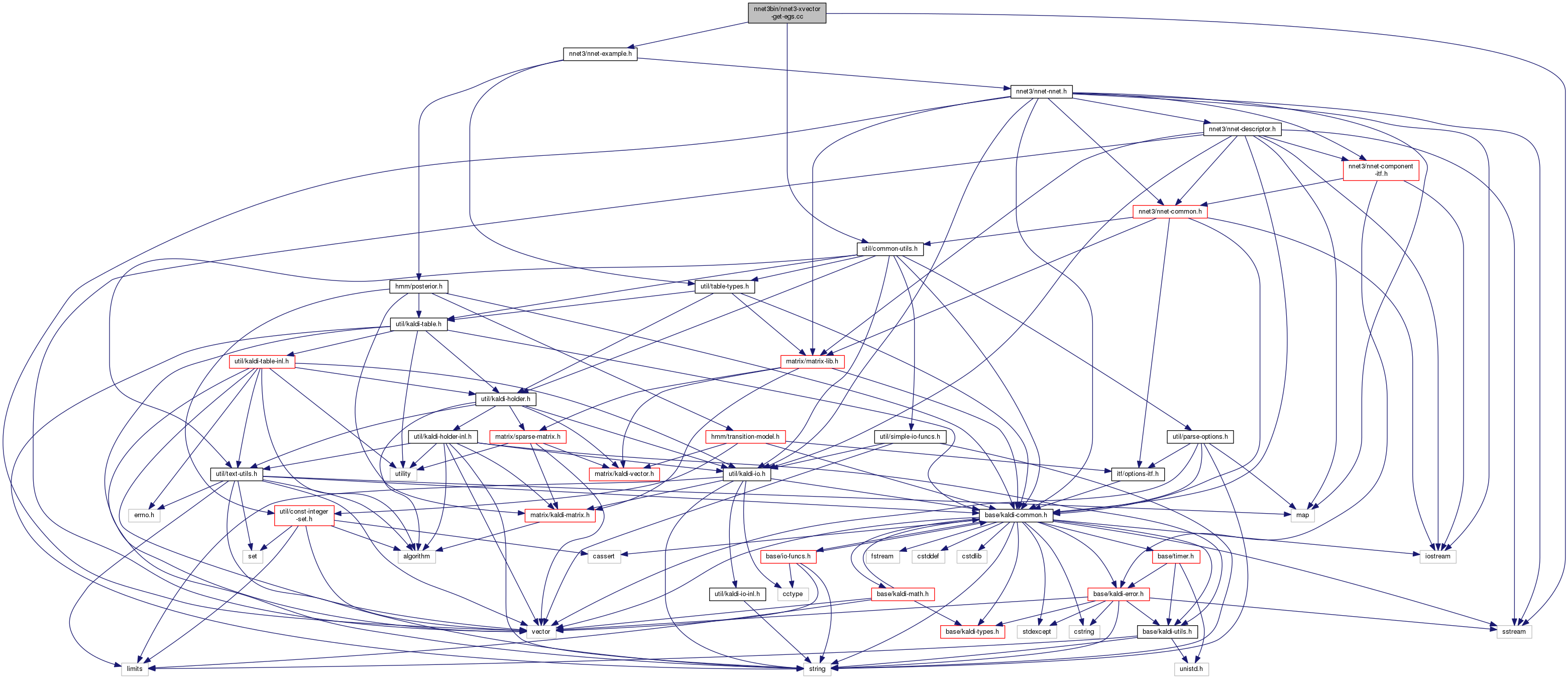135 using namespace kaldi;
140 "Get examples for training an nnet3 neural network for the xvector\n" 141 "system. Each output example contains a chunk of features from some\n" 142 "utterance along with a speaker label. The location and length of\n" 143 "the feature chunks are specified in the 'ranges' file. Each line\n" 144 "is interpreted as follows:\n" 145 " <source-utterance> <relative-output-archive-index> " 146 "<absolute-archive-index> <start-frame-index> <num-frames> " 148 "where <relative-output-archive-index> is interpreted as a zero-based\n" 149 "index into the wspecifiers provided on the command line (<egs-0-out>\n" 150 "and so on), and <absolute-archive-index> is ignored by this program.\n" 152 " utt1 3 13 65 300 3\n" 153 " utt1 0 10 50 400 3\n" 156 "Usage: nnet3-xvector-get-egs [options] <ranges-filename> " 157 "<features-rspecifier> <egs-0-out> <egs-1-out> ... <egs-N-1-out>\n" 160 "nnet3-xvector-get-egs ranges.1 \"$feats\" ark:egs_temp.1.ark" 161 " ark:egs_temp.2.ark ark:egs_temp.3.ark\n";
163 bool compress =
true;
167 po.Register(
"compress", &compress,
"If true, write egs in " 168 "compressed format.");
169 po.Register(
"num-pdfs", &num_pdfs,
"Number of speakers in the training " 174 if (po.NumArgs() < 3) {
179 std::string range_rspecifier = po.GetArg(1),
180 feature_rspecifier = po.GetArg(2);
181 std::vector<NnetExampleWriter *> example_writers;
183 for (int32
i = 3;
i <= po.NumArgs();
i++)
186 unordered_map<std::string, std::vector<ChunkInfo *> > utt_to_chunks;
194 for (; !feat_reader.Done(); feat_reader.Next()) {
195 std::string key = feat_reader.Key();
197 unordered_map<std::string, std::vector<ChunkInfo*> >::iterator
198 got = utt_to_chunks.find(key);
199 if (got == utt_to_chunks.end()) {
200 KALDI_WARN <<
"Could not create examples from utterance " 201 << key <<
" because it has no entry in the ranges " 205 std::vector<ChunkInfo *> chunks = got->second;
207 &num_egs_written, &example_writers);
213 for (unordered_map<std::string, std::vector<ChunkInfo*> >::iterator
214 map_it = utt_to_chunks.begin();
215 map_it != utt_to_chunks.end(); ++map_it) {
220 KALDI_LOG <<
"Finished generating examples, " 221 <<
"successfully processed " << num_done
222 <<
" feature files, wrote " << num_egs_written <<
" examples; " 223 << num_err <<
" files had errors.";
224 return (num_egs_written == 0 || num_err > num_done ? 1 : 0);
225 }
catch(
const std::exception &e) {
226 std::cerr << e.what() <<
'\n';
This code computes Goodness of Pronunciation (GOP) and extracts phone-level pronunciation feature for...
void DeletePointers(std::vector< A *> *v)
Deletes any non-NULL pointers in the vector v, and sets the corresponding entries of v to NULL...
A templated class for writing objects to an archive or script file; see The Table concept...
static void WriteExamples(const MatrixBase< BaseFloat > &feats, const std::vector< ChunkInfo *> &chunks, const std::string &utt, bool compress, int32 num_pdfs, int32 *num_egs_written, std::vector< NnetExampleWriter *> *example_writers)
The class ParseOptions is for parsing command-line options; see Parsing command-line options for more...
A templated class for reading objects sequentially from an archive or script file; see The Table conc...
static void ProcessRangeFile(const std::string &range_rxfilename, unordered_map< std::string, std::vector< ChunkInfo *> > *utt_to_chunks)
